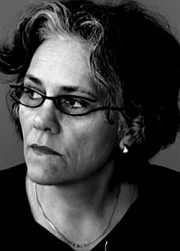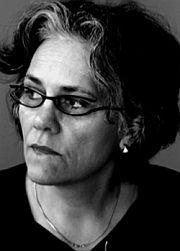Elliott Carter’s brief opening trio Con leggerezza pensosa (With nimble thoughtfulness?), living up to its title, immediately set things going. It struck a playful balance between fast and slow, legato and staccato, and exhilarating activity and dense immobility that seemed lost in thoughtful contemplation. The piece was written in 1990 in homage to the late Italian author Italo Calvino, whose remarks about “the lightness of thoughtfulness,” which so aptly pertains to his own writing, led Carter to compose this work as a memorial tribute. Violinist Terrie Baune, clarinetist Peter Josheff, and cellist Thalia Moore were able to capture the fleeting moods with grace and precision.
Works by Carter and Olivier Messiaen have been appearing together on several programs recently, because of their joint centenary celebrations last December. While radically different in their personal outlook, both composers have been notable experimenters, producing many works that continue to influence the music of today, which is an added incentive for including them on Earplay’s program.
Messiaen’s Cantiyodjaya for solo piano (1949) develops a host of themes and rhythms across a broad musical landscape. Repetitive devices and patterns of serialized pitches and palindromes lend a ritualistic effect to the charm and intensity of his colorful keyboard writing. Long, wayward lines and clangorous chordal outbursts are unique to the composer’s personal style, which still retains considerable freshness and expressive vitality, admirably brought out by Karen Rosenak, whose playing combined clarity, sensitivity, and vigor in an outstanding performance.
Preparing for Survival
Canadian-born Linda Bouchard, now a San Francisco resident, has an active and distinguished career as a composer. Her Systematic Survival for flute, bass clarinet, violin, viola, cello, and piano (2009), which was commissioned by Earplay and the Fromm Foundation, had its first performance on this concert. The
Bouchard uses a prepared piano, with various screws and mutes, creating a gently percussive set of sounds as a background for the opening flute solo, and later in combination with the strings. As the music progresses, the texture becomes gradually brighter and more animated, offering considerable pleasure for the listener in the quietly unfolding tranquillity and its intricate play of unusual timbral effects. With careful pacing, conductor Mary Chun allowed the shape to emerge gracefully and naturally in a richly satisfying performance.
English composer Jonathan Harvey’s Nataraja ended the program, a brilliantly virtuosic duo played to the hilt by flutist Tod Brody and pianist Eric Zivian. Both instruments are entangled in a manic outpouring of notes as flute and then piccolo compete with the piano in a seemingly mad dash to oblivion. A notable addition to the program was Nicola Tzortis’ Amenable for clarinet, violin, cello, and piano — winner of the Donald Aird Memorial Composition Prize, which is presented annually in honor of the late Bay Area composer and friend of Earplay. The 30-year-old winning composer was in the audience to receive enthusiastic applause for an interesting, accomplished work that pits the piano against the other instruments in an ongoing dialogue.
Amenable projected a strong sense of individuality and unity, qualities central to each work on this remarkable concert, which, coincidentally, was the opening event in the San Francisco Arts Festival’s sixth annual season. It was an auspicious start to what looks like a stimulating series featuring performing arts groups from around the world, in several of the city’s most accessible locations. The festival runs through the end of May.

